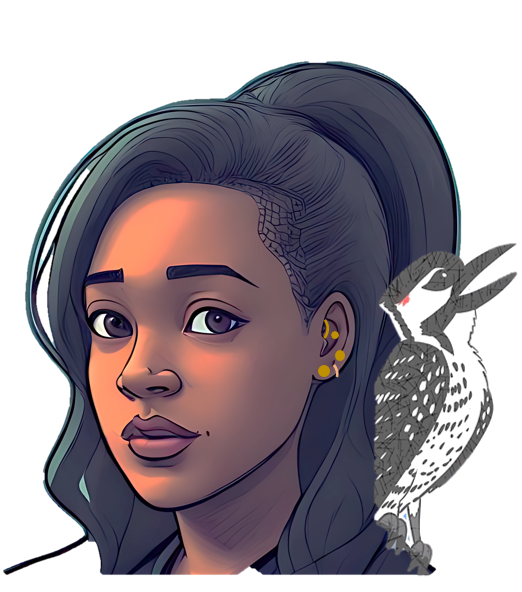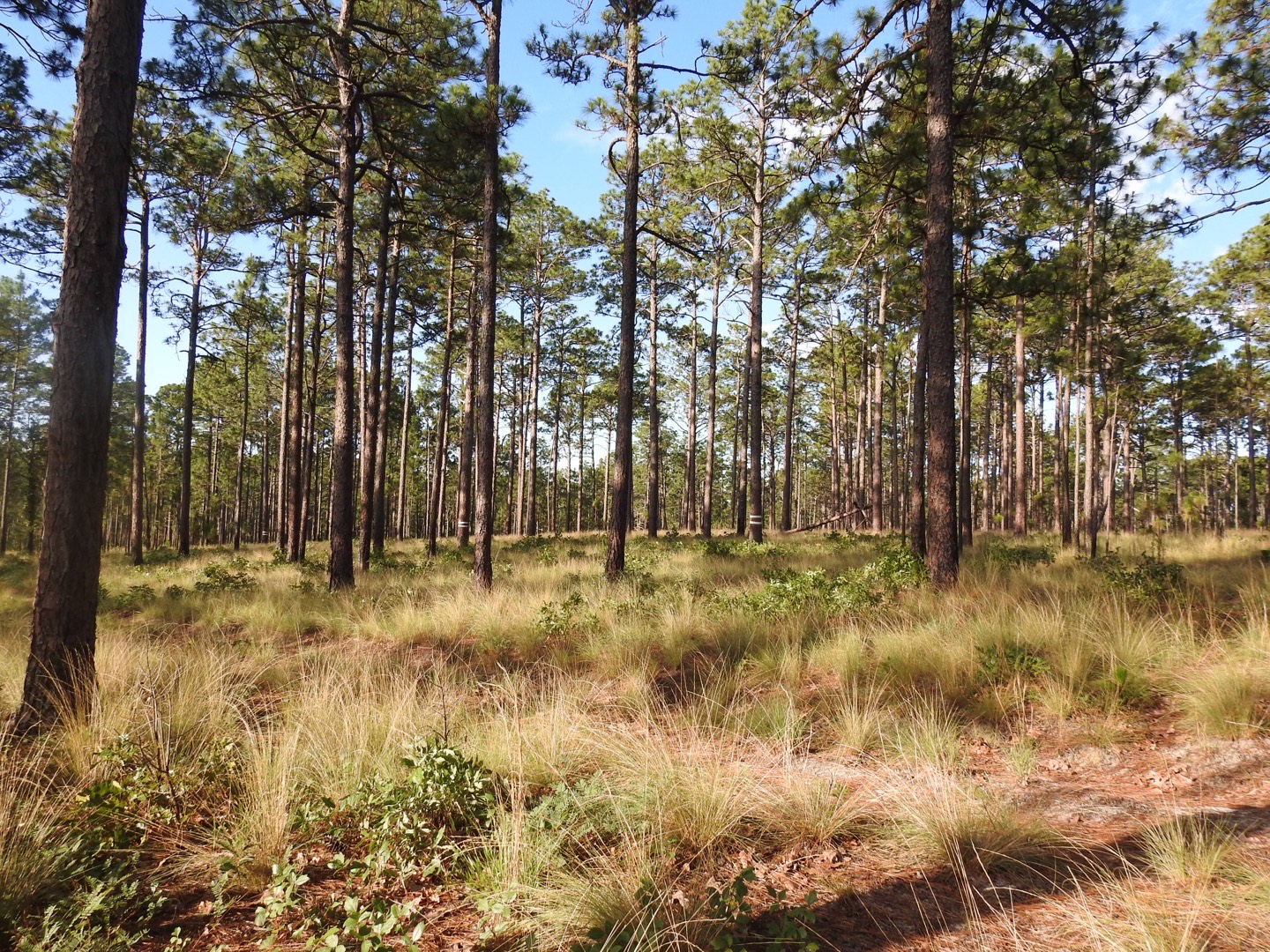SHORT BIOGRAPHY

-
Save
Lauren D. Pharr is an avian ecologist and Ph.D. Candidate at North Carolina State University (NCSU) pursuing her degree in Fisheries, Wildlife, and Conservation Biology. Her current research focuses on studying the effects of climate change on nestling success in the federally threatened Red-cockaded Woodpecker. She earned her B.S. degree in Environmental Biology from Wingate University in 2019 and her M.S. degree in Fisheries, Wildlife, and Conservation Biology from NCSU in 2021. Aside from her research, Lauren is an engaged and award-winning science communicator with written and contributed pieces haven appeared in a variety of outlets including National Geographic and WIRED and has served as a member on the Editorial Advisory Board for The Wildlife Society. Lauren is an advocate for Black and historically excluded minorities in STEM; she serves on multiple committees including NCSU’s Forestry and Environmental Resources’ Diversity, Equity, and Inclusion committee and co-founded a nonprofit: Field Inclusive, which seeks to amplify and support marginalized and historically excluded individuals in the outdoors. Both her research and advocacy work led to her being awarded many accolades, including the North Carolina Wildlife Federation’s 2023 Governors Conservation Achievement Award for Young Conservationist of the Year, the highest honor in the state of NC in the wildlife space. She currently resides in Raleigh, North Carolina.
LONG BIOGRAPHY
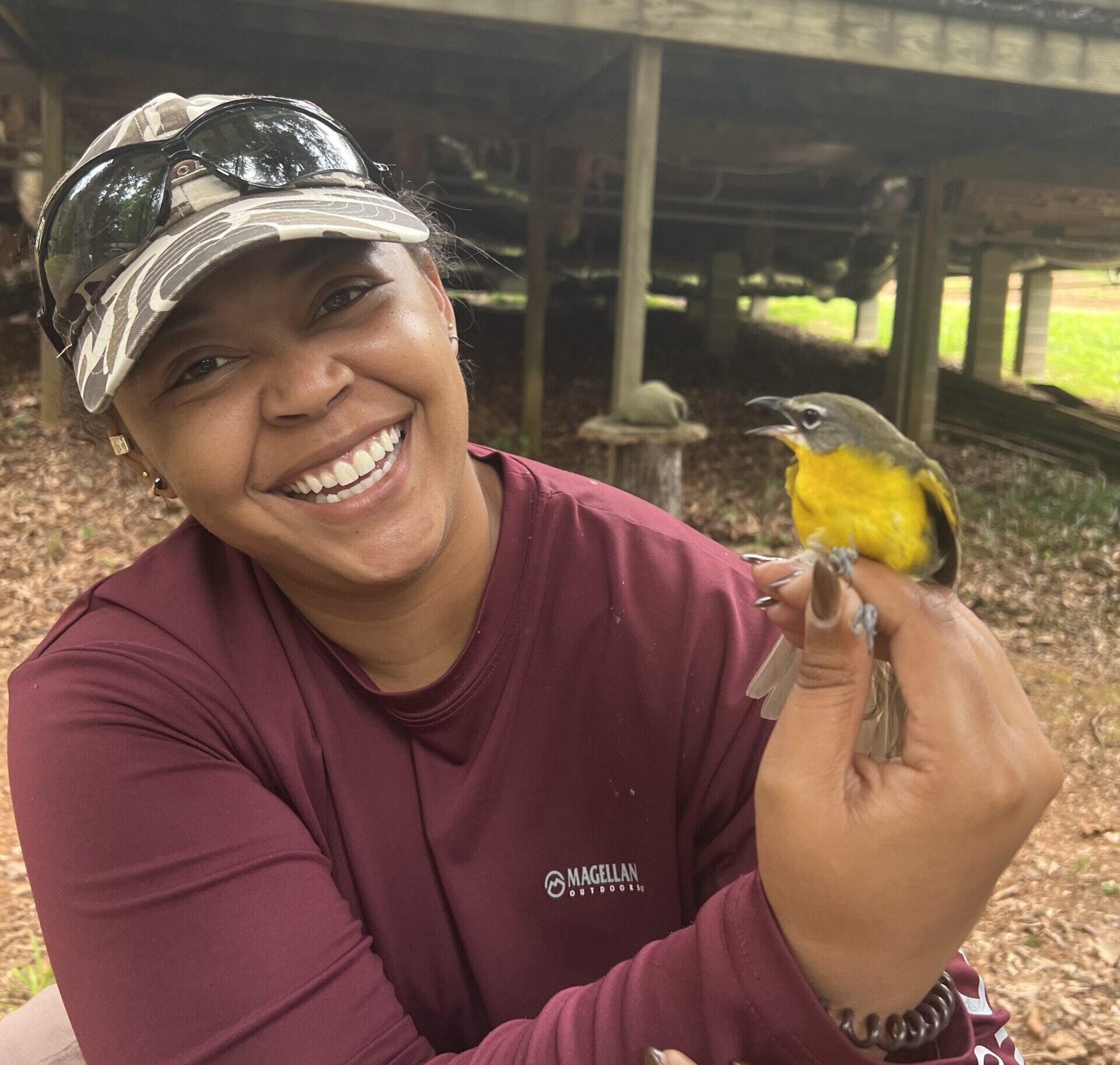
-
Save
LAUREN D. PHARR is an avian ecologist and a current Ph.D. Candidate at North Carolina State University (NCSU) pursuing her degree in Fisheries, Wildlife, and Conservation Biology. She has been a recipient of the 2020 NCSU Charles B. Davey Fellowship for Excellence in Biological Sciences, the 2021 NCSU Forestry and Environmental Resources Faculty Fellowship for Excellence in Graduate Education, and the 2022 NCSU Arthur W. Cooper Graduate Fellowship. She also earned the 2023 Governor’s Conservation Achievement Award for Young Conservationist of the Year, one of the highest wildlife honors in the State, sponsored by the North Carolina Wildlife Federation.
As a graduate student, some might say that Pharr’s dedication to both conservation and diversity, equity, and inclusion is unmatched. She wears many hats including being a researcher, a science communicator, a non profit owner, and an advocate for minorities who are not seeing themselves equally represented in the wildlife space. Many of these activities have been met with accolades, including recognition from the North Carolina Wildlife Federation, the Longleaf Alliance, and North Carolina State University.
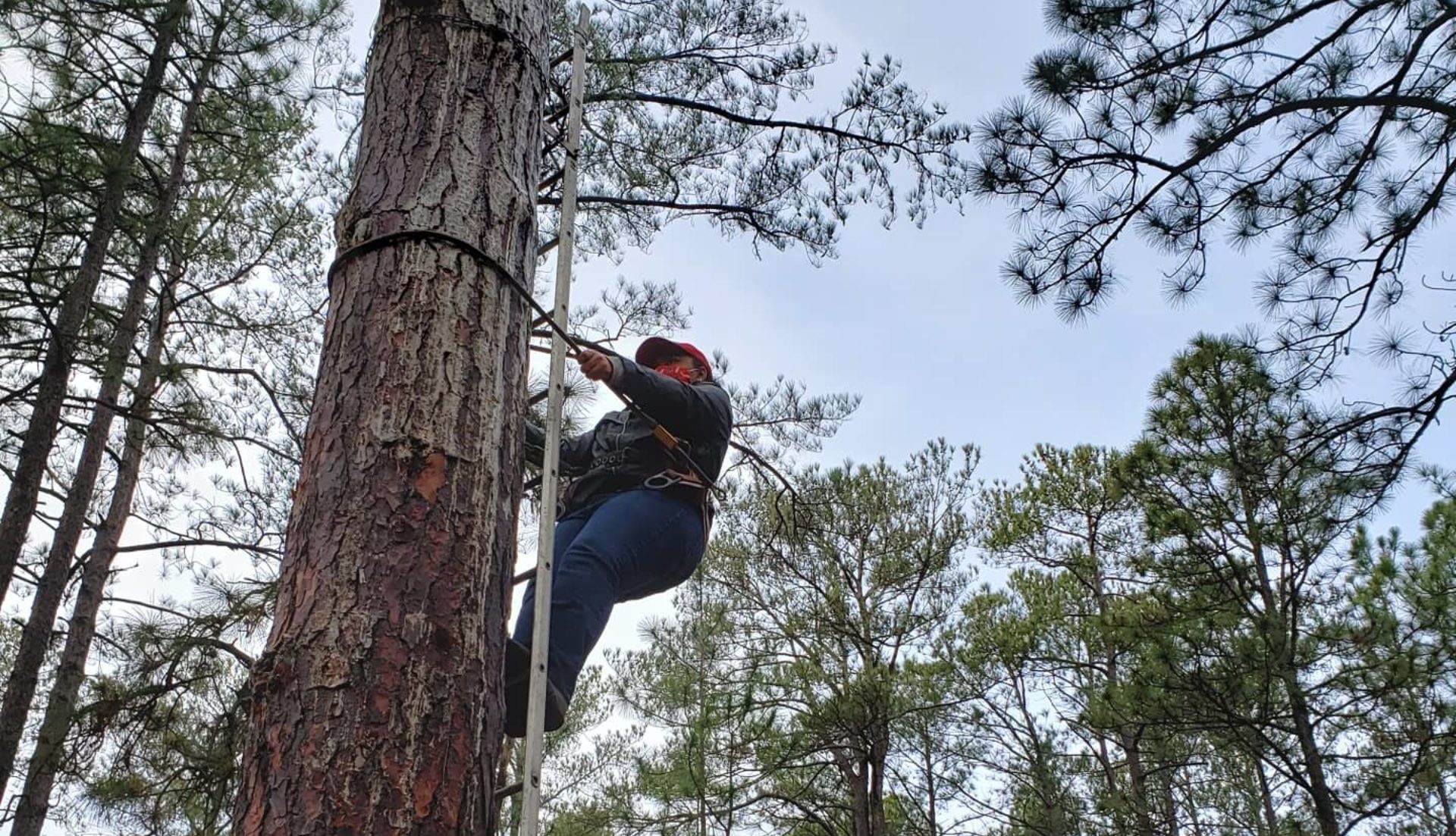
-
Save
With her interests focusing on the behavioral ecology and conservation of birds, Pharr’s current research focuses on investigating the impacts of climate change on avian behavioral responses. As a 2021-’22 Southeast Climate Adaptation Science Center Global Change Fellow, Pharr began researching the potential impacts of climate change on brood loss in the federally threatened Red-cockaded Woodpecker (RCW) under the directions of Dr.’s Caren Cooper (advisor) and Christopher Moorman (co-advisor). Pharr’s RCW research has been featured on PBS’s Sci NC, and has led to many collaborations with various partners, including the United States Fish and Wildlife Service, North Carolina Wildlife Resources Commission, and the Sandhills Ecological Institute. Pharr and her collaborators were recently awarded a contract with The Nature Conservancy and U.S. Department of Defense through the 2022 Readiness and Environmental Protection Integration (REPI) Challenge Grant to support her RCW work. Pharr has also been an award recipient for other research grants (totaling close to $70,000) for her RCW work, including recognition from the Carolina Bird Club, American Wildlife Conservation Foundation, and the Animal Behavior Society.
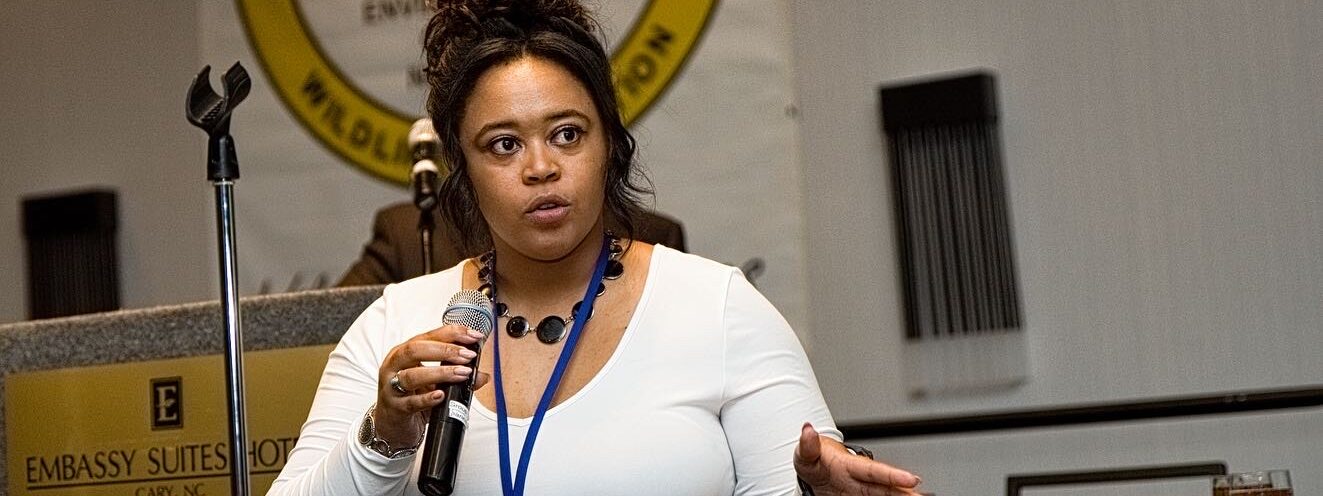
-
Save
As an engaged and award-winning science writer and a member of NCSU’s Leadership in Public Science Cluster, Pharr finds importance in engaging with the public and showcases her work and passions through science communication in the forms of public speaking, science writing, educational outreach and other media opportunities. She has given over 40 talks to professional societies and organizations including the North Carolina Museum of Natural Sciences and the North Carolina Wildlife Federation, contributed articles to BBC Wildlife, the Cincinnati Zoo, and eBird, has been a featured guest on podcasts for Three Rivers Land Trust Campfire Conversations, American Birding Association, and a segment on Ologies with Alie Ward, and has been featured in articles in Discover Magazine, National Geographic and WIRED.
Pharr has previously held editorial roles with both North Carolina Sea Grant where she has featured articles on the Gullah/Geechee Nation and Climate Change on Birds in North Carolina in their award-winning magazine Coastwatch, and The Wildlife Society’s Editorial Advisory Board for their magazine The Wildlife Professional.
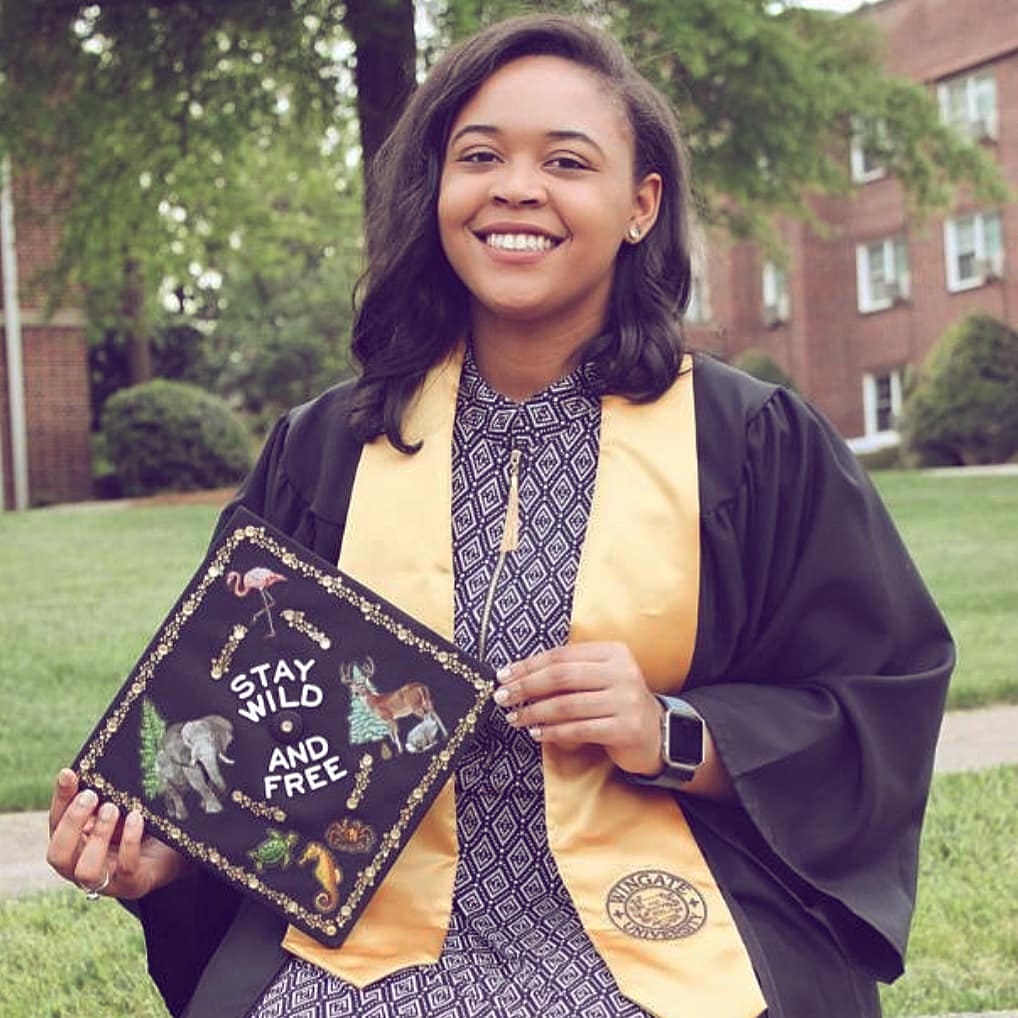
-
Save
Growing up in the rural town of Waxhaw, North Carolina, Pharr credits her father, who is a hunter, and uncle, who was an avid backyard birder as the ones who unknowingly got her interested in wildlife and birds. Pharr would have the life-long passion of becoming a veterinarian, but would go on to attend Wingate University with a different motif. As a junior in undergrad, Pharr decided on pursuing an Environmental Biology degree after taking a course in Wildlife Biology with her research advisor Edward Mills, and would then go on to research changes in vocal harmonics of the Chinese Blue-breasted Quail. Pharr presented this research at the 2019 Association of Southeastern Biologists Conference in Memphis, Tennessee, the 2019 Southeastern Undergraduate Research Symposium at Queens University, and the 2019 Wellspring Symposium at Wingate University where she won Wingate University’s Undergraduate Research Award in Pure and Applied Sciences.
Graduating with her B.S. in Environmental Biology in 2019, she would attend NCSU to pursue her M.S. degree in Fisheries, Wildlife, and Conservation Biology under her advisor Dr. Caren Cooper. Pharr’s thesis examined the impacts of urban noise and light pollution on adult avian survivorship using data from the citizen science project Neighborhood Nestwatch. Pharr was awarded research grants from the Alongside Wildlife Foundation and the North Carolina Wildlife Federation, both of whom supported her urbanization work. Pharr’s research was published in 2023, titled “Using Citizen Science Data to Investigate Annual Survival Rates of Resident Birds in relation to Noise and Light Pollution.”
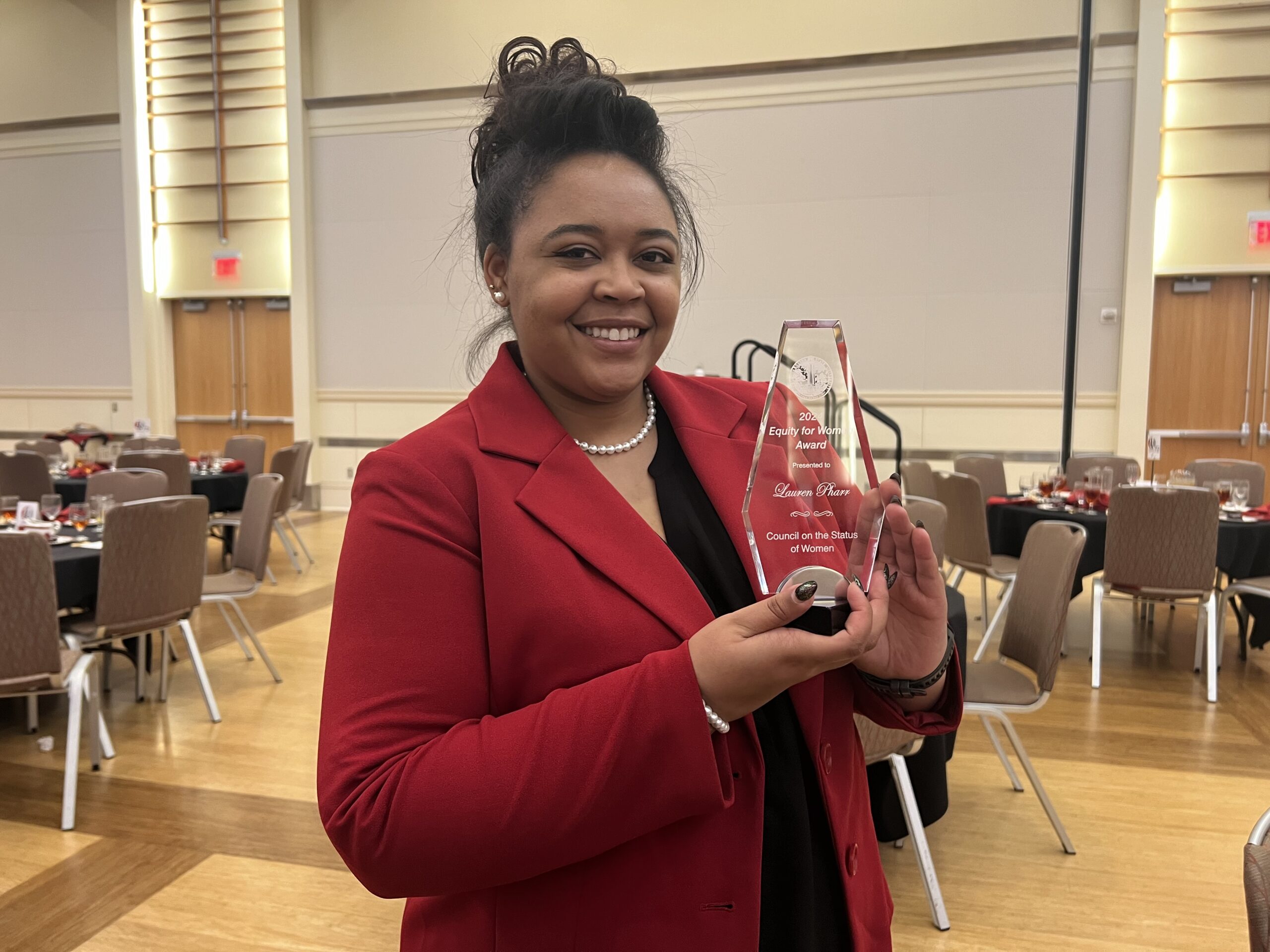
-
Save
Becoming certified by NCSU’s Office for Institutional Equity and Diversity in 2020, Pharr participates in many DEI-related initiatives including speaking on topics related to representation in writing through diversity, promoting diversity in nature, and field safety. Pharr has many active roles at NCSU, including serving on her Graduate Student Association as well as her college’s DEI Committee. She is also a co-founder of the non-profit Field Inclusive, which seeks to support marginalized and historically underrepresented minorities who work in the natural science field. As a Black Woman in STEM and in the Wildlife Biology Field, she continues to strive for inclusivity. In February of 2024, Pharr was the recipient of an NCSU Equity for Women award in the student category.
She currently resides in Raleigh, North Carolina.
